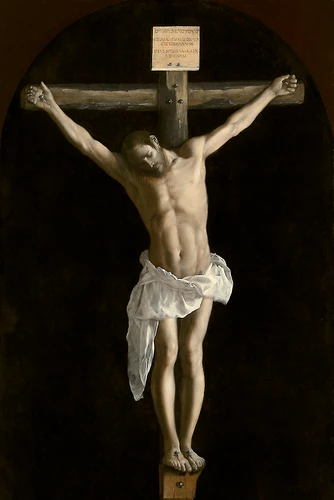
Johann Sebastian Bach’s St. John Passion was first heard during the Good Friday Vespers service at the Nikolaikirche in Leipzig on April 7, 1724. It was composed to be experienced in a liturgical setting, within a Christian congregation at worship. Today, it is much more likely heard in concert or on recordings.
In deference to the origins of the work, the 2013 recording featuring the Dunedin Consort, conducted by John Butt, presented a reconstruction of the liturgical experience of the original performance, complete with congregational singing, liturgical chant, and the reading of a sermon (in German) originally given by Erdmann Neumeister and published in 1720.
In 2017, John Butt conducted a performance of the St. John Passion at a BBC Proms concerts, in which the audience at the Royal Albert Hall sang with the choir the same Lutheran chorales that were sung during the original 1724 service. The YouTube recording of this concert (embedded below) provides English subtitles for the text being sung throughout the work, a helpful addition for listeners without adequate German.
Just last week (March 23, 2018), the Netherlands Bach Society released a video recording of their performance of the St. John Passion. It is one of many fine performances on their remarkable website, allofbach.com.
In the video below, conductor Jos van Veldhoven talks about leitmotifs in the St John Passion.
FURTHER READING
It is better to listen to Bach’s St. John Passion than to read about it. But the books and articles listed below might help enrich the experience of listening for you.
Jaroslav Pelikan, Bach among the Theologians (Philadelphia: Fortress Press, 1986)
A learned theologian and Church historian situates Bach’s sacred choral music in several contexts, including the rhythm of the Church year, the musical heritage of the Reformation, and the cultural revolution of the Enlightenment. Of special interest is his essay on the Christological and soteriological emphases in the St. John Passion.
Markus Rathey, Bach’s Major Vocal Works: Music, Drama, Liturgy (New Haven: Yale University Press, 2016)
A guest on volume 135 of the MARS HILL AUDIO Journal, Dr. Rathey includes a chapter in his book on the St. John Passion, along with discussions of the St. Matthew Passion, the Magnificat, the Christmas, Easter, and Ascension oratorios, and the B-minor Mass.
Calvin Stapert, “Christus Victor: Bach’s St. John Passion,” The Reformed Journal, March 1989.
Similar in emphasis to Pelikan’s essay in Bach among the Theologians, Dr. Stapert discusses in detail how the St. John Passion emphasizes the themes in John’s Gospel of the power and glory of Jesus the King.
Michael Steinberg, “The Passion of Saint John, BWV 245,” posted on the Bach Cantatas Website.
This brief essay is adapted from Steinberg’s Choral Masterworks: A Listener’s Guide (New York: Oxford University Press, 2005). In it, Steinberg offers a brief historical background to Bach’s composition of the St. John Passion, as well as some helpful points in understanding how the structure of the work establishes its meaning.
The following texts are more specialized and scholarly:
John Butt, Bach’s Dialogue with Modernity: Perspectives on the Passions (Cambridge: Cambridge University Press, 2010)
A discussion by a prominent Bach scholar and conductor of how the two extant settings of the Passion story by Bach illustrate an interplay between traditional and modern mentalities and sensibilities.
Eric Chafe, J. S. Bach’s Johannine Theology: The St. John Passion and the Cantatas for Spring 1725 (New York: Oxford University Press, 2014)
A detailed study of how the distinctive theological concerns of the Gospel of St. John are reflected in the structure of the St. John Passion.
Robin Leaver, “The mature vocal works and their theological and liturgical context,” The Cambridge Companion to Bach, edited by John Butt (Cambridge: Cambridge University Press, 1997)
This scholarly article includes a long section on the St. John Passion, which concludes: “Here is Bach the preacher in sound, whose purpose is not simply to relate in musical terms the great dramatic story, as if he had written a religious opera, but rather to draw the worshipper at Good Friday Vespers into the story itself and to find within it a contemporary significance.”
Michael Marissen, Bach and God (New York: Oxford University Press, 2016)
Dr. Marissen discussed this book on volume 137 of the MARS HILL AUDIO Journal.
Michael Marissen, Bach’s Oratorios: The Parallel German-English Texts with Annotations (New York: Oxford University Press, 2008)
The literal translations of the German texts for these major works (including the St. John Passion) are explicated with citations from the Luther Bible of Bach’s own day, as well as extensive footnotes discussing theological themes addressed in the text.
Michael Marissen, Lutheranism, Anti-Judaism, and Bach’s St. John Passion (New York: Oxford University Press, 1998)
Dr. Marissen discussed this book on volume 37 of the MARS HILL AUDIO Journal.